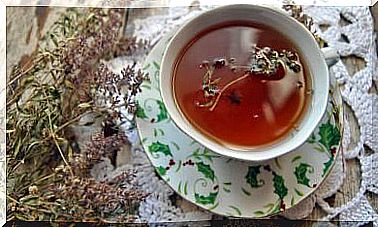What Should A Person With The Flu Be Like?

When the cold comes, we spend more time indoors and around others who can spread cold and flu viruses. A person with the flu must maintain a specific diet to strengthen the immune system, relieving symptoms and preventing complications.
It is important that you know which foods will help strengthen your defenses to relieve the uncomfortable symptoms of illness as quickly as possible. That’s what we’ll talk about next. Check out!
Food and health

Hippocrates said 25 centuries ago:
Is that Hippocrates, known as the father of medicine, already knew the great influence of food on our health.
The foods we eat throughout the day can influence our health positively or negatively. In fact, there are many micronutrients (vitamins and minerals) that contribute to the normal functioning of the immune system, such as copper, folate, iron, selenium, vitamins A, B12, B6, C, D and zinc.
How does food influence the flu state?
The body needs all its resources to fight disease, so it is convenient to provide good quality food, rich in nutrients and easy to digest. Avoid exaggerated meals, as well as those rich in animal fat, sausages, snacks or industrialized products.
The diet of a person with the flu should be light, rich in fruits, vegetables and legumes, as it will be easier to digest and will help relieve symptoms more quickly.
How should a person with the flu be fed?
1. Garlic

Garlic has antiviral and antibacterial properties that can help keep you healthy. It can help fight coughs, colds and sinusitis. Even fresh and raw garlic is what brings the most health benefits. You can consume between 1 or 2 cloves of garlic a day as a preventative measure.
2. Yogurt with probiotics
Probiotics are live microorganisms with beneficial effects on health. There are several scientific articles that claim that probiotics can reduce the duration of flu or cold episodes. For this reason, we recommend that you drink yogurt regularly. Your immunity will thank you!
3. Ginger
Ginger is a traditional remedy in universal medicine. With its strong, spicy flavor, ginger helps to break up phlegm. In this way, it facilitates the cleaning of the respiratory tract and alleviates the symptoms of congestion. On the other hand, it also contains phytochemicals that help fight viruses that can cause respiratory illness.
4. Foods that contain zinc

Foods that contain high levels of zinc can strengthen your immune system and prevent infections. If you already have a cold, zinc can help prevent complications.
These are some of the common foods that contain zinc:
- Legumes (beans, chickpeas, cowpeas, lentils, peas and soybeans).
- Pumpkin seeds, whole grains, walnuts.
- Beef and eggs.
5. Honey
According to data from the National Library of Medicine, this food acts directly on the respiratory tract because it is a natural expectorant that helps to eliminate phlegm. Thus, it is a very useful food to control and fight infections in the throat, thanks to its antiseptic properties.
Other Feeding Tips for a Flu Person

If you already have flu symptoms but don’t have an appetite, you don’t need to eat a lot of solid foods for the first few days. However, liquids such as juices, purees and homemade soups are recommended. It is essential that you drink plenty of fluids (between 8 and 10 glasses of water) to facilitate the removal of mucus and hydrate your mucous membranes.
have chicken broth
A University of Nebraska study confirmed what every grandmother already knew: good chicken soup makes you feel better because it reduces congestion and lubricates your throat, alleviating irritation. Furthermore, it is nourishing and moisturizing. There is also some scientific evidence regarding its anti-inflammatory effects.
Eat white meat and legumes
Apparently, taking 75 mg of zinc a day appears to contribute to a 20-40% decrease in the duration of colds. Remember that the foods richest in this mineral are white meat, seafood, fish, oilseeds, whole grains and pulses.
As you’ve noticed, a person with the flu has to eat a balanced diet. Also, getting enough sleep and moving moderately will also help to overcome the infection.









